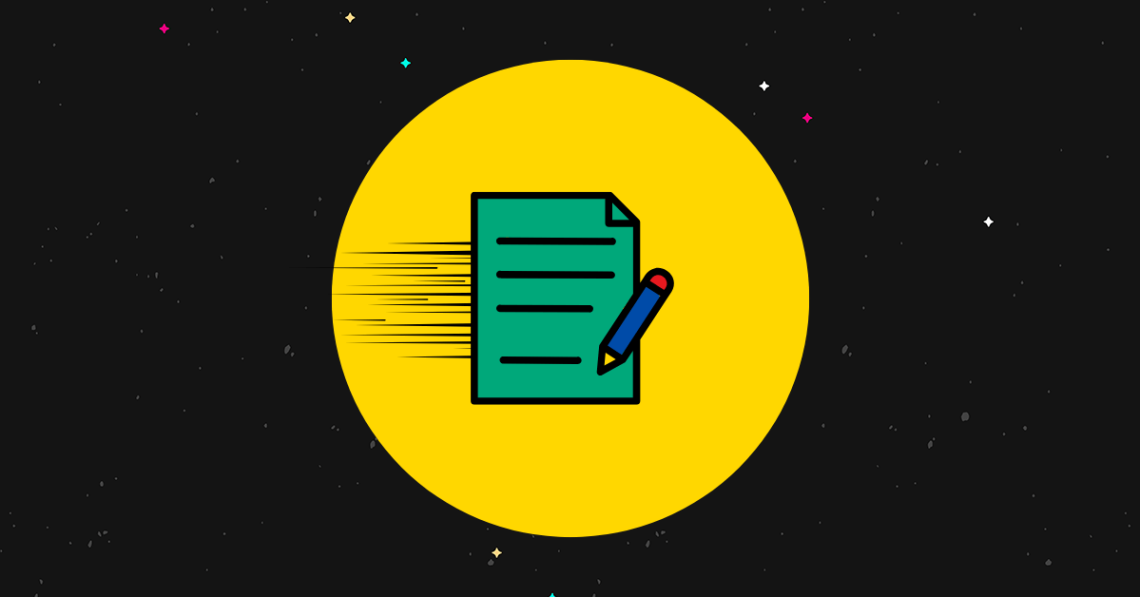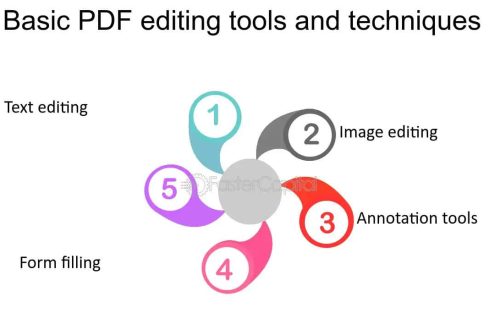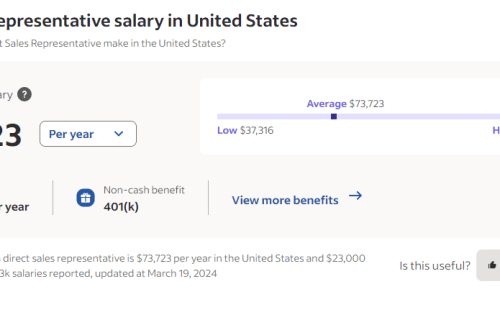Do you shy away from writing longer, authoritative blog posts in fear of how long it will take?
All you need is a better approach to writing blog posts in general.
In this post, we cover a process that will help you write blog posts much faster, including longer posts.
The 8-step process for writing longer blog posts faster
Here’s each step in the process we’ll be covering below for writing posts faster:
- Know the topic before you begin.
- Craft a rough outline as best as you can.
- Research the topic.
- Craft a final outline.
- Write the body section first.
- Add placeholders and short descriptions for images.
- Add placeholders for internal links.
- Write the post’s intro and conclusion last.
1. Know the topic before you begin
If you don’t really have a process for writing new blog posts and simply write what comes to mind, you may find it difficult to stay on topic.
Even worse, you may not even realize you’re doing this.
In reality, you should have a clear idea of the topic your article is about before you start working on it.
Have these two items prepared before you begin the next step in the process:
- A title for your blog post.
- One to three sentences that describe the primary topic of your post.
The title you write here doesn’t need to be perfect. A working title that accurately describes what your post is about is good enough. You can even come up with a few titles if you want.
Conduct thorough keyword research for your niche if you need help coming up with concise topic ideas.
You can also research your audience by seeing what topics your competitors write about and what topics gain a lot of traction on social media and community websites, such as Reddit and niche-specific forums.
2. Make a rough outline for your article
Assuming you know a little bit about the topic you’re writing about, make a rough outline of how you think the structure should look.
Use bullet points, and structure your rough outline into H2 subheadings.
You can also jot down notes under each subheading.
Here’s what my rough outline for this article looked like:
- Introduction
- The X-Step Process for Writing Longer Blog Posts Faster (H2)
- Research the topic thoroughly
- Make a detailed outline
- Focus on main section of the article first
- Use placeholders for images
- Final Thoughts (H2)
That’s all you need for this stage.
What this does is demonstrate that you know exactly what you’re writing about. It also gives you a baseline to work with as you begin your research during the next step of the process.
3. Research the topic thoroughly
This is the most important step in the process. The more research you do before you start writing, the easier writing will be.
Not only should you conduct research on the topic you’re writing about, you should create a separate document to collect that research in.
You can even organize your research document into subtopics.
Google should be your main source for research, especially if you only want to use one research method.
All you need to do is enter the primary keyword you plan on targeting into Google, and see how the top one to five articles on the results page covered the topic.

These are the posts that rank the highest for the keyword, so they’re your best bet when it comes to determining what content should appear in your article.
However, it’s important to understand that these articles are also your biggest competition for this keyword. That’s why doing thorough research to look for additional insights on the topic is so important.
Other sources for research can include forum posts, YouTube videos and podcast episodes.
Another possible source are SEO optimization tools like Frase.

These tools have lists of recommended keywords to include in your article. What these lists also do is give you additional ideas for topics to include in your article.
One of the most important features these tools offer are recommended blog post lengths, which are based on the average blog post lengths of the top-ranking articles for the keyword you input.
Having a specific, data-backed blog post length in mind can prevent you from spending too much time writing a post that’s longer than it needs to be.
You should only make it longer than this recommended length if you feel the additional content would benefit your audience.
4. Create a final outline for your article
Create an official outline for your blog post by doing the following:
- Breaking the article up into different headings.
- Filling in each section with your research.
Structuring your article into different headings
Using your research, your own knowledge of the topic and guidance from your competitors’ articles, break up your article’s primary topic into at least one primary sub topic.
Make each primary subtopic an H2 heading in your outline.
Our outline for this article had two H2 headings: one for the main “The X-Step Process for Writing Longer Blog Posts Faster” section and one for the conclusion “Final Thoughts.”

Add additional H2 headings to your outline if you feel there are more primary subtopics your article can be broken up into.
Otherwise, use H3 headings to break up your H2 sections even more.
The majority of this article is made up of H2 and H3 headings.

Break up H3 headings into H4 headings if it feels appropriate. That’s what we’re doing in this section. “Structuring Your Article into Different Headings” and “Filling in the Outline with Your Research” are H4 headings under the “Create a Final Outline for Your Article” H3 heading.
You can use H5 and H6 headings as well, but you’ll rarely come across a need for them. In reality, if you find yourself needing them, consider if you’re able to break up the post into additional H2 and H3 headings instead.
H1 headings should be reserved for the blog post title you input into your content management system, such as WordPress.
The most important purpose of this step is the way it helps you stay on topic during the writing phase of creating a blog post.
Without an outline, you simply write whatever comes to mind or whatever pops up first when you research.
Filling in the outline with your research
Now comes the hardest and second most important step: taking all of the relevant pieces of information from the research you conducted and placing it where it belongs in your outline.

Having this info readily available in your outline will make the writing phase of creating longer blog posts go much quicker.
5. Write the body section of your post first
You may be tempted to start your post at the beginning, but it’s much more constructive to write the body section first. This simply means to leave the introduction and conclusion last.
You can either write in the order you have the outline structured in or write in a way that makes sense to your brain. This means writing the easiest or most difficult sections first, depending on what you want to get out of the way first.
Refer to your outline (and your research document if you need to) often as you write. This is the key to writing faster.
6. Create placeholders for images
The writing phase goes much faster when you don’t stop to handle other tasks. This includes creating images for your post.
Unless you’re creating an instructional post in which you need to capture screenshots as you work your way through a demonstration, it’d be much more efficient to create placeholders for images in your article instead.

This way, you’ll know where you want to add images in your article and can work on them during the editing phase.
7. Create placeholders for internal link ideas
Any disruptions to the writing process can cause delays and distractions that keep you from getting the article done. This includes ideas you may have for internal links as you write.
Instead of going to your website in search of an internal link you feel you should add to your article, use your word processor’s highlight tool to highlight the bit of text you want to add an internal link to.
Then, add that internal link during the editing phase.
8. Write the introduction and conclusion last
Coming up with the perfect way to open and close an article can be difficult.
This is why it’s best to save the introduction and conclusion of your article for last. It’ll speed up the writing process overall.
Bonus tip: optimize your writing environment
Outside distractions can do a lot to hinder the writing process. Try to optimize your writing environment as much as you can to help you stay focused.
This could mean getting your own office, working in a coffee shop, trying different types of music to listen to while you type and wearing headphones to block out outside noise.
Put your phone on Do Not Disturb.
You can even install apps for your phone, computer and browser that block your access to distracting apps and websites if you need to.
Final thoughts
Once you’re done writing your article, the next step is to edit it.
This involves reading through the entire thing to make corrections and remove anything you don’t feel is necessary.
This is also where you should create and add images and internal links.
Be sure to read our mega list of blogging tips if you need more help.





